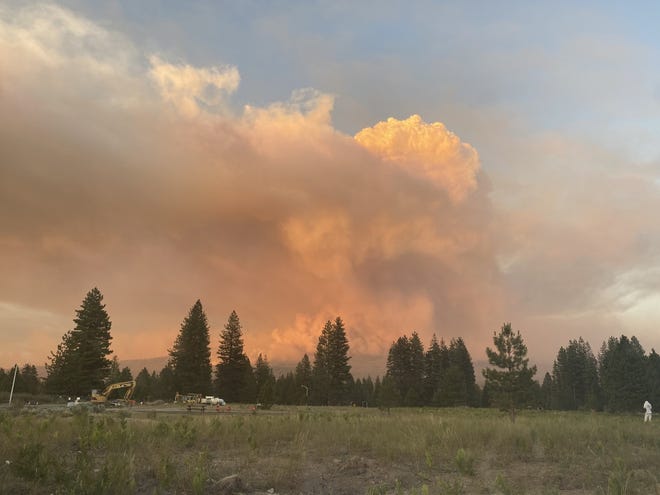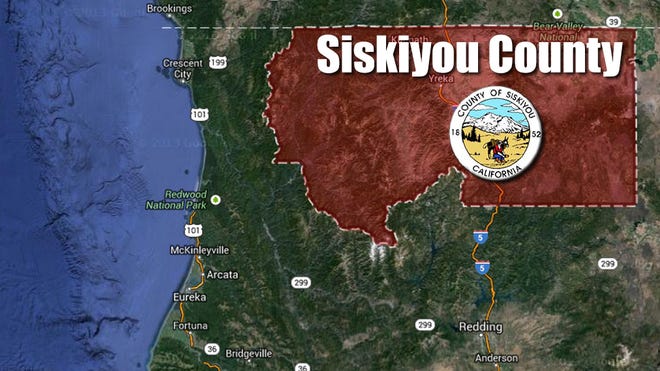Some Siskiyou County Asian Americans who were cited or fined after allowing water trucks to fill on their properties and be distributed elsewhere, in violation of a county zoning ordinance, are calling out the county officials’ enforcement of the rule as race discrimination, according to a legal action filed by several landowners of Hmong decent that is winding its way through U.S. District Court.
On Oct. 25, U.S. District Court Chief Judge Kimberly Mueller tentatively ruled that four Asian American plaintiffs listed in a lawsuit filed against Siskiyou County and the Siskiyou County Sheriff’s Office will be harmed without a preliminary injunction halting use of the zoning ordinance.
In the order, Mueller wrote that “the court tentatively concludes this is a case of potentially ‘extreme’ and ‘very serious damage’ in which a mandatory injunction is likely necessary to ensure people have water for their basic needs.”
The judge gave both sides two weeks to again weigh in on water access issues before she makes a final ruling on the scope of the injunction and whether the plaintiffs should be required to post a bond to cover any potential damages that might occur if a preliminary injuction prevents the county from using its zoning ordinance. Those filings are due Nov. 8.
Mueller wrote that “the court cannot equitably order plaintiffs, for example, to withhold water from family, friends and neighbors in need. But the court will not bar the county from using the legitimate tools at its disposal to keep groundwater from being used to illicit cannabis operations.”

Background on a Mount Shasta Vista lawsuit from 2021
Allegations of discriminatory enforcement efforts originally arose in 2020, after the Siskiyou County Board of Supervisors passed an ordinance banning off-site transportation of more than 100 gallons of groundwater that law enforcement believed could be used to irrigate illegal cannabis cultivation sites.
Several Hmong American landowners in the Mount Shasta Visa Subdivision area filed suit in 2021, claiming the county’s “ordinances had effectively shut off the supply of water they had relied on to meet their basic needs, from drinking and cooking to raising animals and growing gardens,” said documents filed in court.
Many Asian American residents living in the Shasta Vista area do not have wells and rely on family and others who do have wells as their source of water, according to court documents.
Those two ordinances were eventually repealed.
Alleged racial discrimination tied to water use is not the only issue that has rocked Siskiyou County in recent years.
Tensions have long simmered between the Asian American community and county officials, who have blamed Hmong residents for some of the illegal marijuana grows.
More:Hmong American activist ends hunger strike after talking with California Attorney General’s office
The killing of a Hmong American man by state and Siskiyou County law enforcement officers during evacuations from the destructive Lava Fire in 2021 led to calls for an investigation into the man’s death, attracting attention from politicians and activists from beyond the region.
The 35-year-old farmer, Soobleej Kaub Hawj, was shot and killed by law enforcement officials as he and his family fled the wildfire. Official accounts of the report claim Hawj brandished a gun at an evacuation checkpoint, although activists said eyewitness reports contradicted the one presented by law enforcement.
New plaintiffs keep up fight against county, sheriff over water rules
When the water problem continued in 2021, the Siskiyou County Board of Supervisors passed two new ordinances that year, requiring landowners to have permits before extracting groundwater on their properties and transporting it elsewhere, court documents said. Water truck drivers also needed permits, under the new rule.The judge’s recent order is the result of legal action filed by a new group of Asian American plaintiffs who allege the county went on to use discriminatory selective enforcement efforts on people who were providing water to their neighbors, even if there was no accusation of connection with cannabis.
“Transferring of water is quite common in the rural communities,” said ACLU of Northern California Senior Attorney John Do, who represents the plaintiffs.
Note to readers: If you appreciate the work we do here at the Redding Record Searchlight,please consider subscribing yourself or giving the gift of a subscription to someone you know.
While in both cases, Siskiyou County and its officials “have adamantly denied they were motivated at all by the race of the people living in Shasta Vista,” wrote the judge, she added that “the Asian American plaintiffs contend the opposite is true.”
The Siskiyou County Sheriff’s Office was asked on Wednesday whether its ordinance requiring permits for extraction of groundwater that is being transferred elsewhere is being enforced, but a response was not received by deadline.
Michele Chandler covers dining, food, public safety and whatever else comes up for the Redding Record Searchlight/USA Today Network. Accepts story tips at 530-338-7753 and at mrchandler@gannett.com. Please support our entire newsroom’s commitment to public service journalism by subscribing today.

